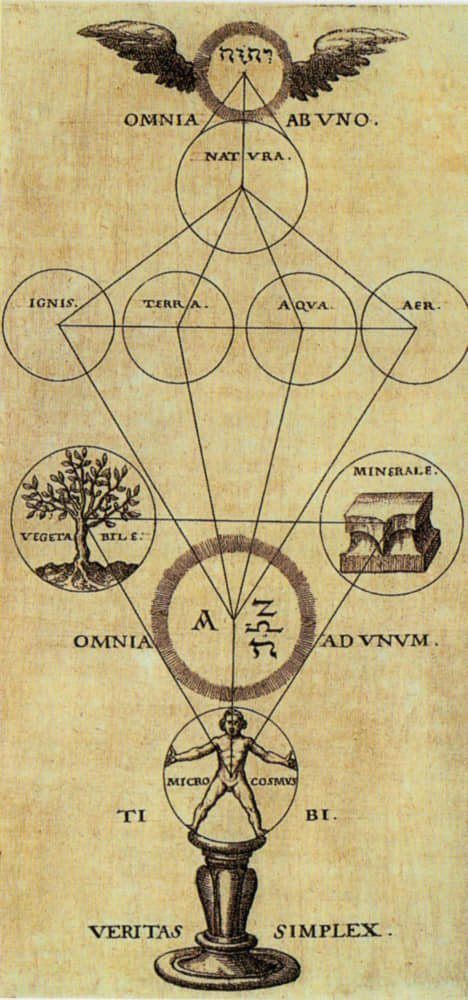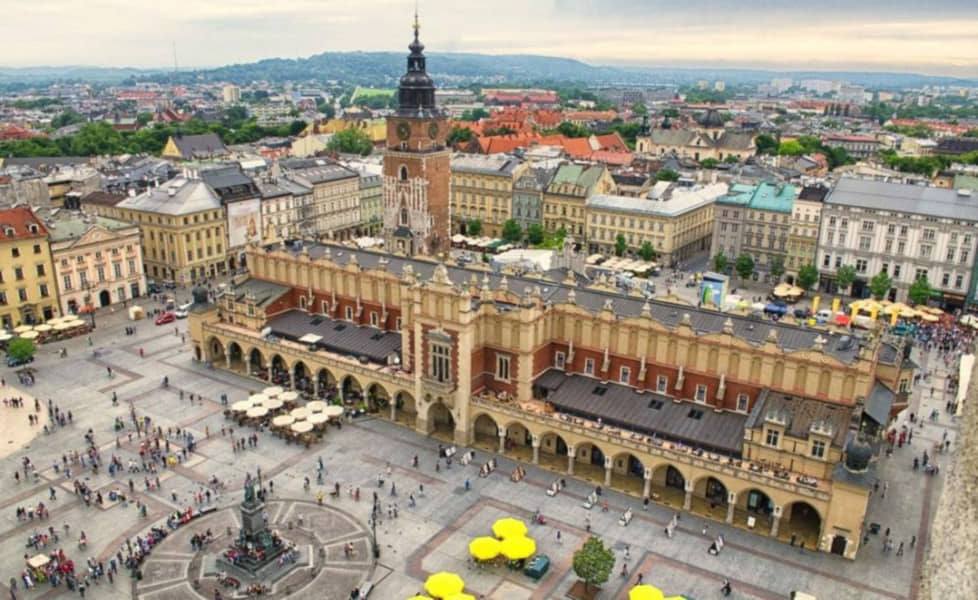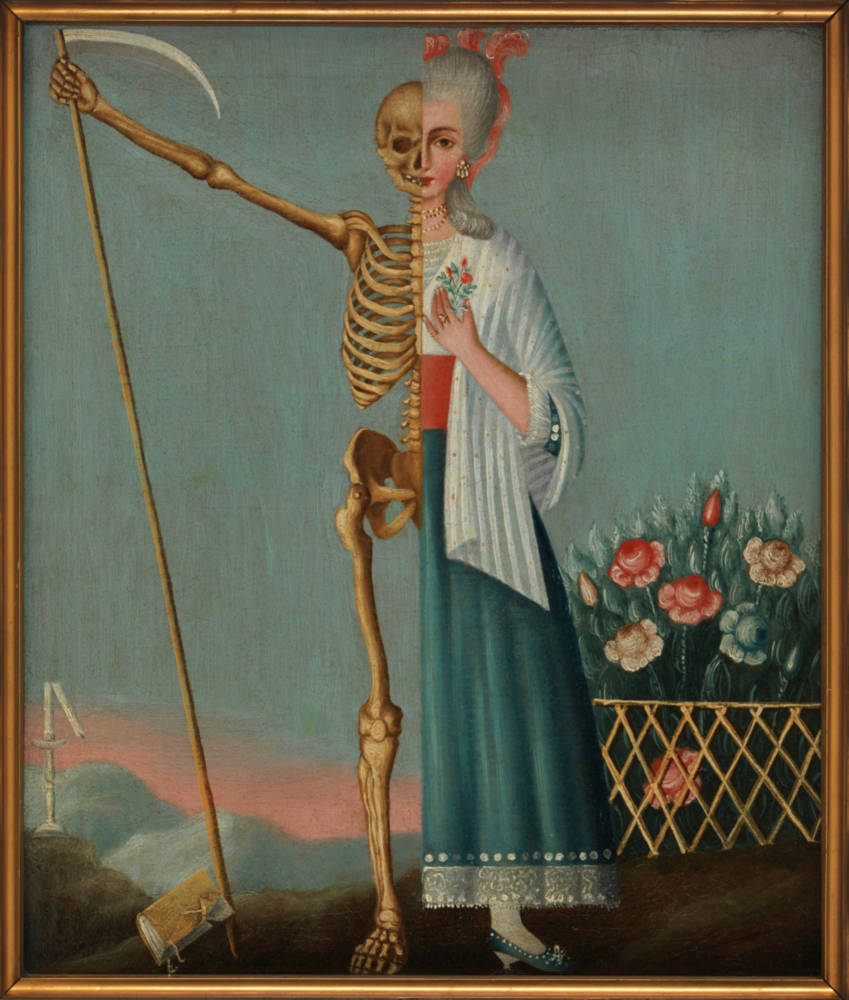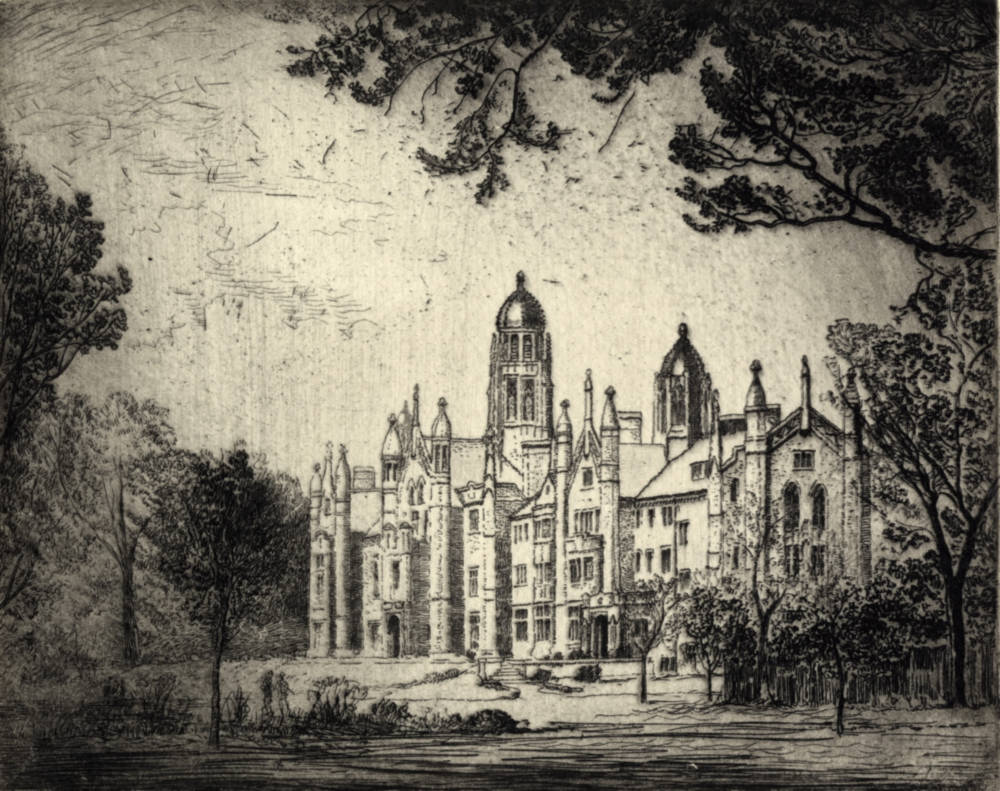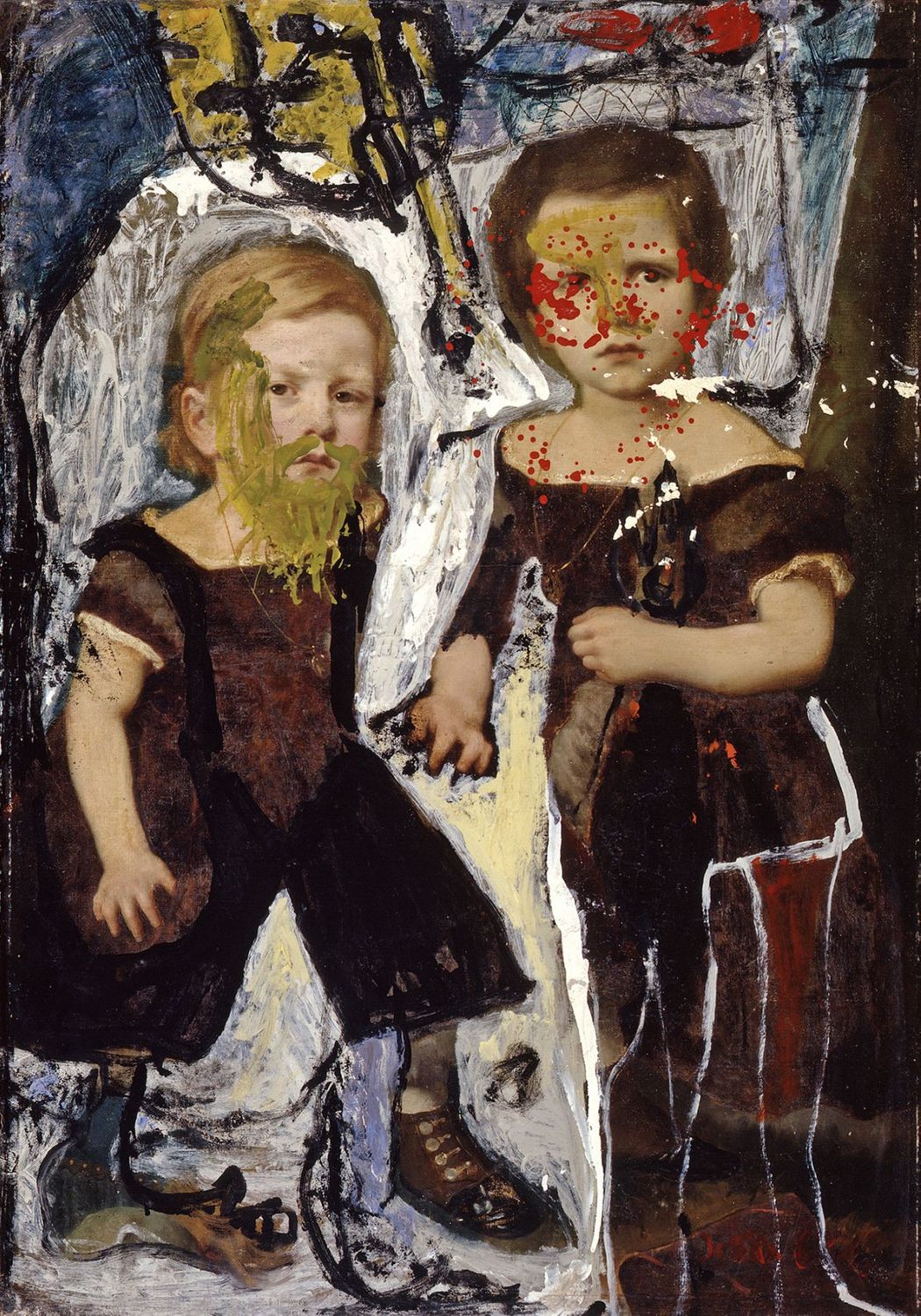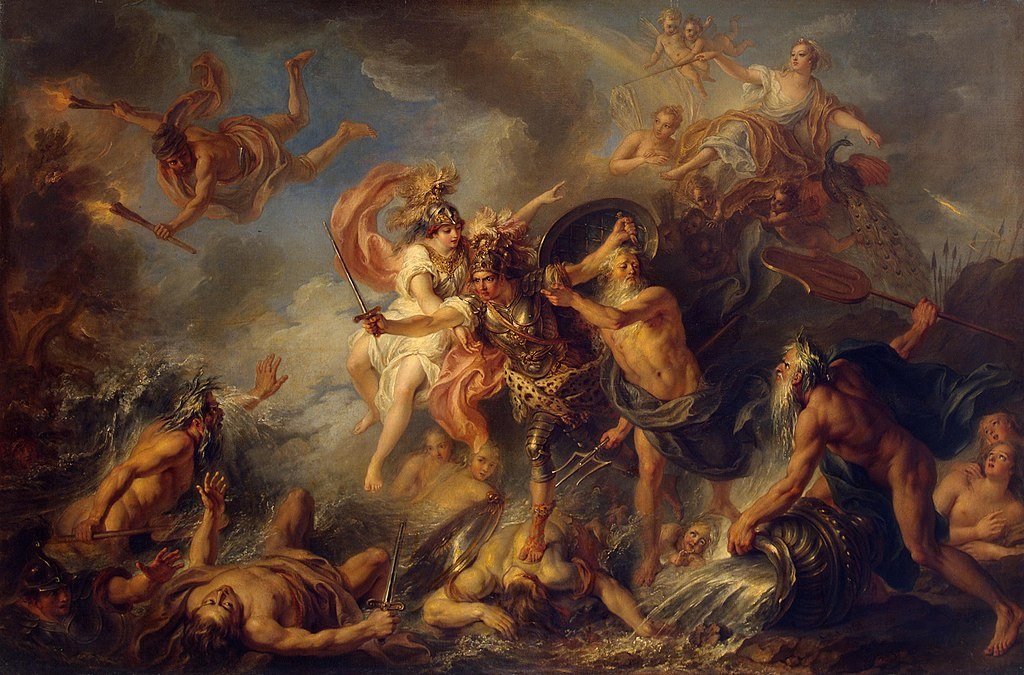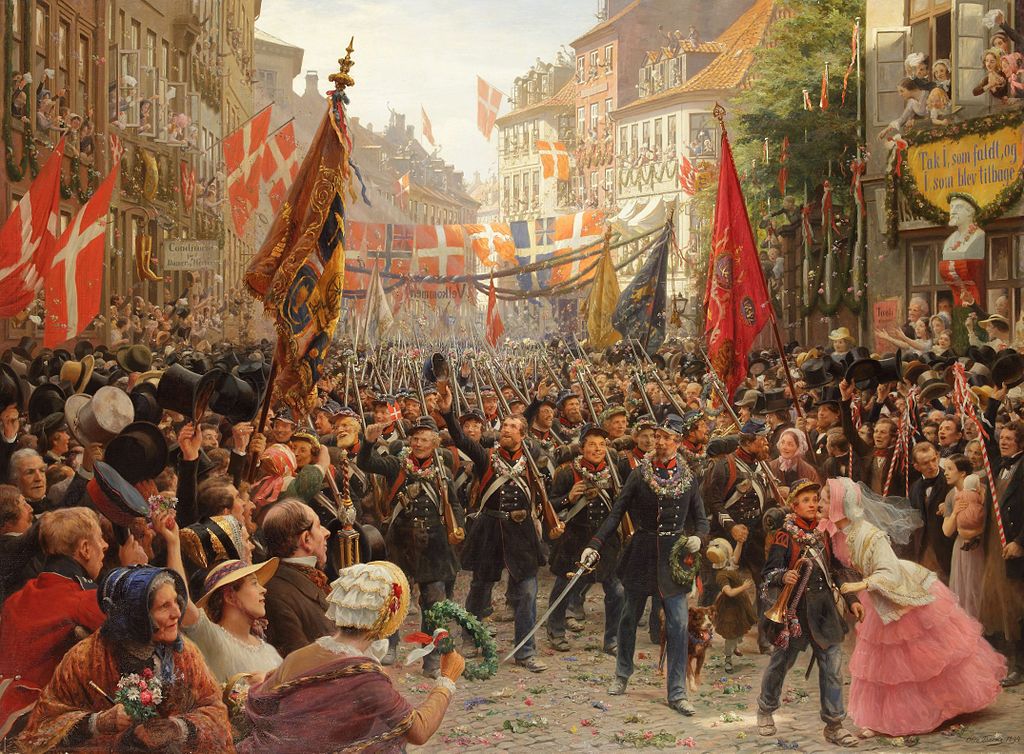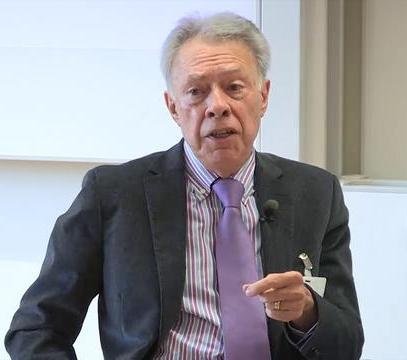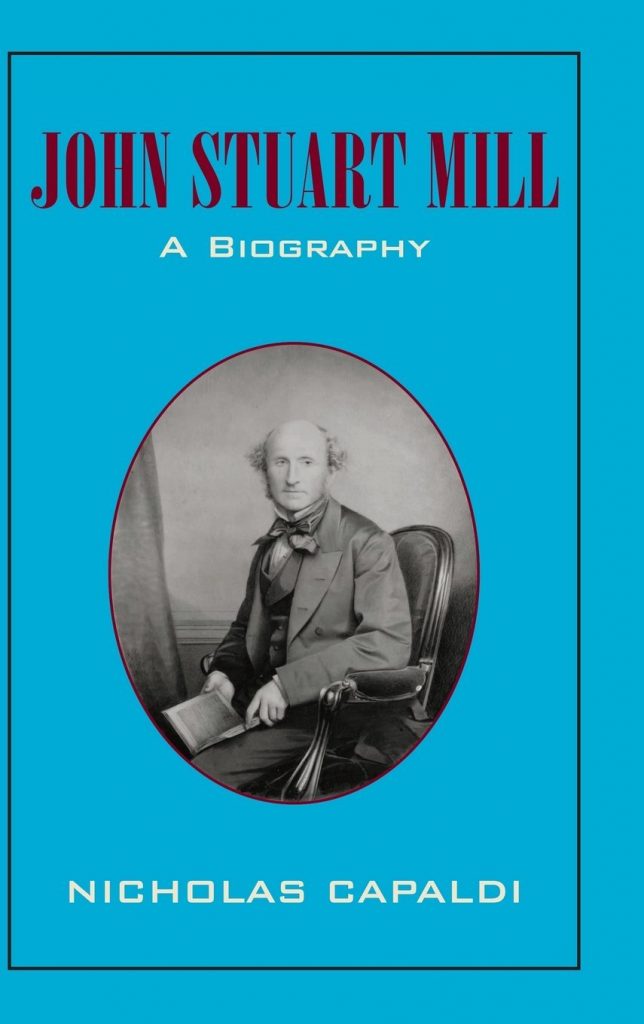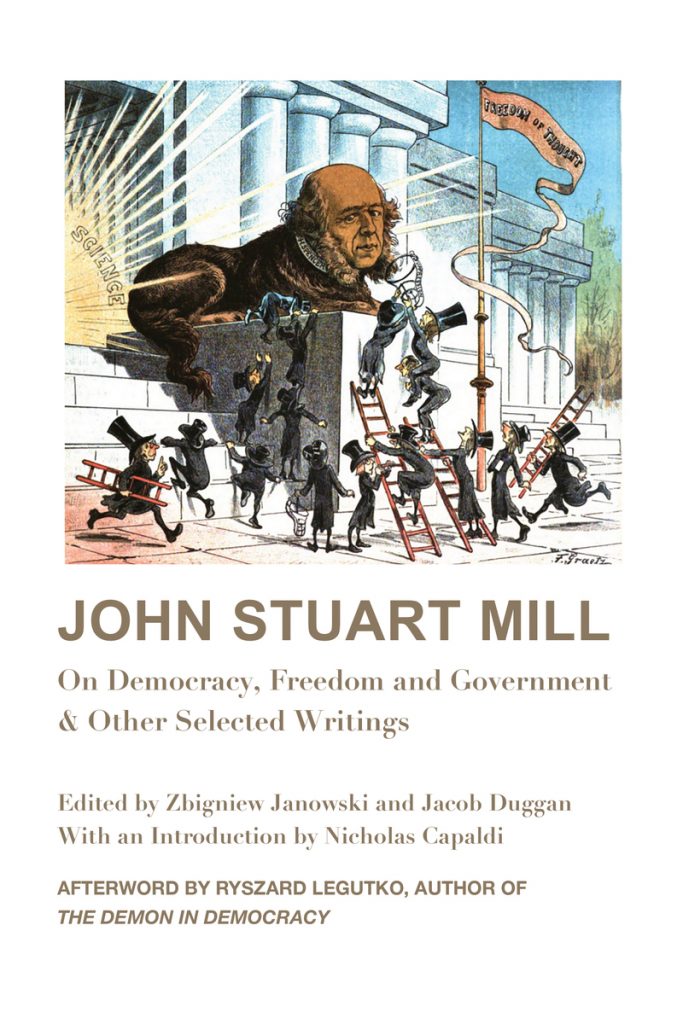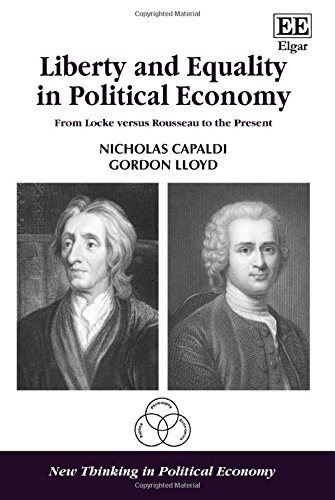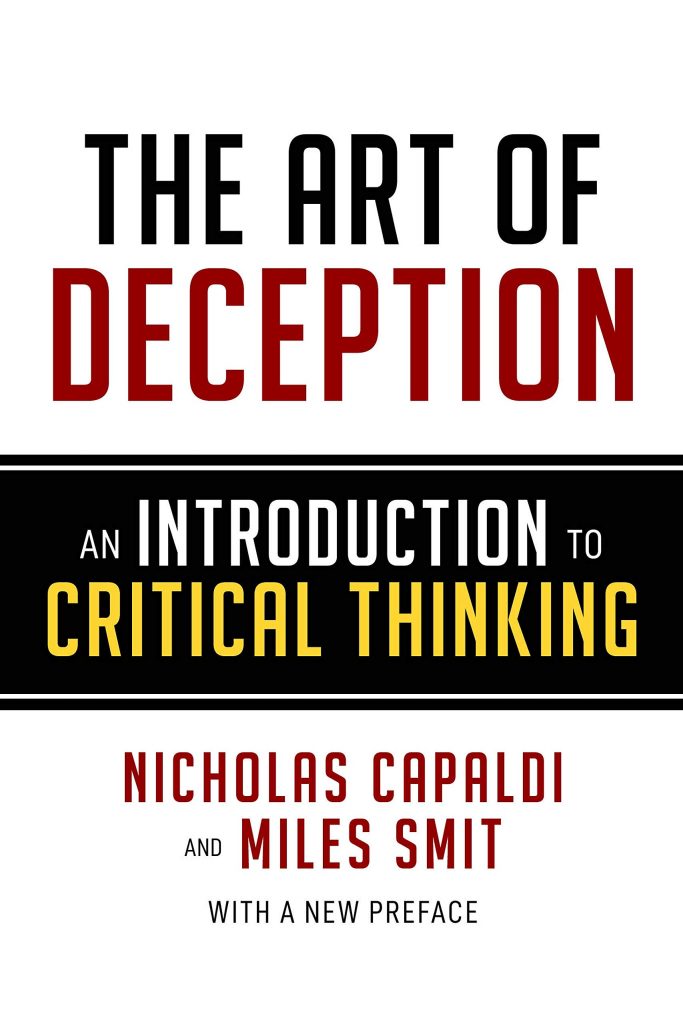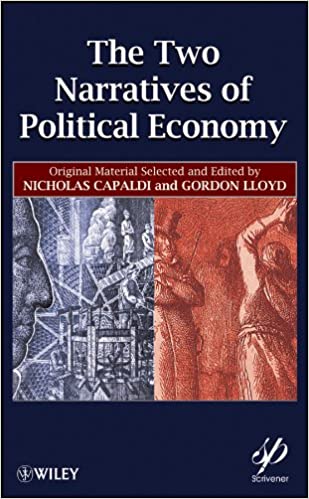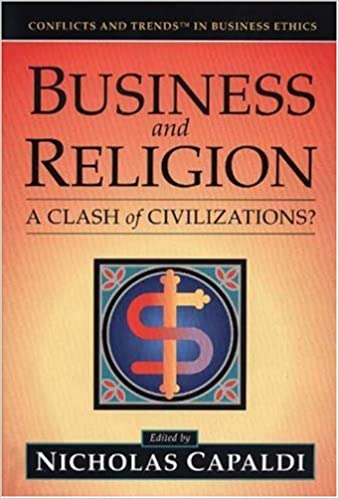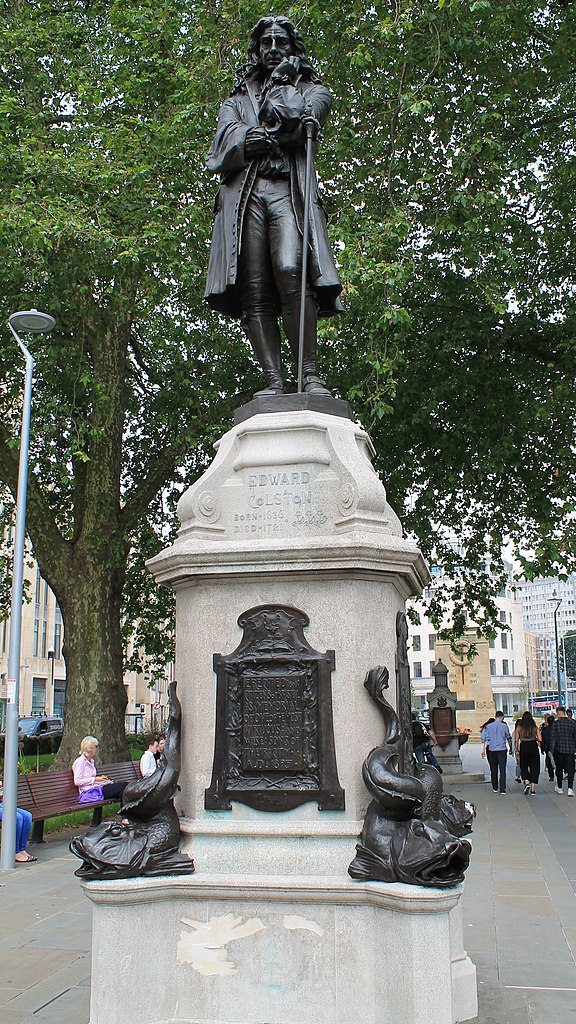They are little children rioting and barring out the teacher at school. But their childish delight will end; it will cost them dearly” (Fyodor Dostoevsky, “The Grand Inquisitor” in The Brothers Karamazov).
1. The Destruction of Evergreen College
In September of 2017, biology professor Brett Weinstein, a “progressive” Bernie Sanders and “Occupy Wall Street” supporter, at the very progressive Evergreen College, in very progressive Washington state, along with his similarly progressive wife, professor Heather Heying, were forced to resign from their positions at Evergreen. Professor’s Weinstein’s crime was to write a letter to the faculty at Evergreen objecting to a change in the college’s annual “day of absence” which, in past years, had been a day in which “students of color” absented themselves from the campus “in order to highlight their vital and unappreciated role” on the campus. In 2017, however, “white” students were “invited to leave the campus” for the entire day after “students of color ‘voiced concern over feeling as if they are not welcome on campus, following the 2016 election’.” Since the Evergreen campus had nothing whatsoever to do with the election of Donald Trump it is not clear what the 2016 election has to do with minority students “feeling unwelcome” on the Evergreen campus but that doesn’t matter because actual reasons are no longer required for a “felt” grievance.
Professor Weinstein’s letter objected to barring members of a particular racial group, Caucasians, from the campus because that is not “a call to consciousness” but rather is “a show of force, and an act of oppression in and of itself.” His wife’s sin was that she wrote a public letter to the staff and faculty at Evergreen in which she criticized the college’s handling of the situation. She made no racial remarks whatsoever, but was, of course, immediately accused of being a racist.
Professors Weinstein and Heying were foolishly operating under the old rules that one should treat people on the basis of the content of their character, not the color of their skin, as opposed to the new rules that one should treat people on the basis of the color of their skin as opposed to the content of their character. As the New York Times, not exactly a bastion of white supremacy, put it, Professor Weinstein “had the gall to challenge a day of racial segregation.” Professor’s Weinstein and Heying, like many of us, had not, apparently, digested the new view that racial segregation is not racism any more, even though it had been the very definition of racism not so long ago (before it was miraculously redefined as the opposite of racism).
Indeed, the current “President” of the United States, Joe Biden, announced that he would pick his Vice-Presidential running mate on the basis of her gender and skin color, not the content of character; and he was, of course, celebrated for this racism by the “news” media. This is a turning point in American history. One now picks someone for a major position, not because he or she is qualified but because they check the boxes of “identity politics.” This is how nations end.
For his unforgiveable sin of objecting to racist segregation at Evergreen, Professor Weinstein was confronted by about 50 students outside his classroom who called him a racist and accused him of supporting white supremacy. Professor Weinstein had, of course, made no assertion of white supremacy whatsoever. However, the criterion of being a white supremacist is no longer that one is a white supremacist. The new criterion is that one disagrees with the leftist cause du jour. The college president, George Bridges, exhibiting the level of courage and commitment to principle that one has come to expect from college “presidents” and administrators these days, ordered the campus police to stand down, whereupon they informed Professor Weinstein that they could no longer guarantee his safety on campus.
As a consequence, Professor Weinstein had to hold his class in a public park (which would, no doubt, raise some thorny insurance issues, but no one was thinking of what would happen if a student were injured off campus because no one was thinking at all). President Bridges, apparently working on a comedy routine, perhaps for Saturday Night Live, called the “protestors” courageous, expressed his “gratitude” to them, and reminded everyone that freedom of speech is of great importance and must be protected – even as he allowed one of his professors and his wife to be run off the campus for exercising their right to freedom of speech. As everyone now knows, at least on our university campuses, “War is peace, freedom is slavery, and ignorance is strength.”
The truth, of course, is that the students who drove Prof. Weinstein and Professor Heying off the campus were not “protestors.” A protestor is someone who holds a sign that says that racism is wrong, or perhaps, with a flower in their hair, says, “Make love not war.” These Evergreen “protestors” were thugs employing force and intimidation to get their way. In these kinds of contexts, the word “protestor” is now an Orwellian euphemism employed by college presidents and other overpaid unfunny comedians on late night television to avoid their responsibility to describe campus thugs for what they are.
As all this was going on, photographs and names of Professor Weinstein’s students were circulated online and graffiti, “Fire Brett!” appeared on campus buildings. It is, apparently, not sufficient to destroy the professor’s career because he was not sufficiently obedient. It is now also necessary to endanger his students as well. The New York Times, commendably, quoted a line of Allen Bloom’s book, The Closing of the American Mind: “A few students discovered that pompous teachers who catechized them about academic freedom could, with a little shove, be made into dancing bears.” The students did not turn Professor Weinstein or his wife into dancing bears, but they did bag the college president quite quickly, although, admittedly, that is not the coup it once was because this is now the preordained outcome.
As a result of the student activist attacks on a distinguished faculty member who resisted racial segregation, resulting in both him and his wife being forced off the campus permanently, thereby damaging the quality of education offered to the students at Evergreen, and the President’s incomprehensible praise for the student mob, Evergreen College later had to pay Prof. Weinstein and his wife a $500,000 settlement for failing to protect them from race-based hostility and “threats of physical violence” on campus.
Further, Evergreen is being rewarded by cuts of more than 10 percent from its operating budget for 2018-2019 and raises in student fees because of declining enrollment. It would appear that parents do not wish to send their children to a “college” in which distinguished professors are threatened and forced to resign, and in which even the completely innocent students caught in the middle have their personal details posted online by perpetually aggrieved leftist thugs. Who could have seen that one coming? Not, apparently, the brilliant “president,” faculty, and student “protestors” at Evergreen.
The New York Times article also acknowledges that leftist attacks on conservative speech on university campuses have become quite common. What makes the Evergreen case noteworthy is that it is not just conservatives who are now attacked by leftist mobs but anyone, even a seriously “progressive” professor and his wife, who have had their careers as professors ended for opposing the Left’s narcissistic effort to gain an entirely symbolic token of appreciation of their vital role on campus.
Although the Left has created these ignorant snarling adolescents, believing they will be of use in achieving their political agendas, they are now relearning the hard universal truth that since these thugs will by nature never be satisfied, because their demands are based on whim, not reality, they will inevitably always want more, which, since “more” cannot be given indefinitely into the future, eventually turn on their own. Thus, progressives are now beginning to experience what conservatives have suffered for decades.
For example, immigration activists have recently protested naming a school in Chicago after Obama because he has now been designated an “oppressor.” As one of these activists put it: “If you’re removing the name of Thomas Jefferson, one oppressor, the name of Obama is another oppressor, and our families do not want to see that name.”
2. The Unmitigated Horror Of Permitting A Ben Shapiro On Campus
Another illuminating example of campus intolerance for conservatives is provided by Ben Shapiro’s attempt, sponsored by Young Americans for Freedom (YAF), to give a speech titled, “When Diversity Becomes a Problem,” at California State University at Los Angeles. Faced by the prospect of the unmitigated horror of an articulate conservative on campus (although, admittedly, Shapiro is probably smarter than most of the professors at that university, and is, therefore, not actually harmless where left wing dogma is concerned), the President of the University, William Covino, tried to have Shapiro’s event cancelled entirely and replaced by a different kind of event.
After YAF and Shapiro pushed back hard, the school backed down and said that the event could go forward without interference. However, student “protestors” (another mob) formed a human chain to prevent people from entering the event through the front door, thereby interfering with the civil rights of the people who wanted to hear Shapiro. This is not, however, seen as a problem on college campuses because the expression “civil rights” no longer means civil rights. For the uninformed, “civil rights” now means, roughly, “latest leftist preferences.”
Eventually, small groups of two or three people were able to enter the Shapiro event with escorts through the back door. When the “activists” became aware of the back-door entrance, they began to block it as well. Some of those who tried to enter the Shapiro event claimed that they were punched and (not surprisingly) called white supremacists. Recall that the expression “white supremacist” does not mean white supremacist anymore, but, rather, now means person of any race who attends a conservative lecture.
The fire alarm was pulled, a regular strategy employed by “protestors” opposed to conservative speakers on a university campus, perhaps because doing so requires no intelligence whatsoever, making it the perfect tactic for today’s leftist thugs. Students were also harassed when they tried to leave the event. Professor Melina Abdullah, one of the professors fearful of inviting such a terrifying conservative to speak on campus, called Ben Shapiro, a “Neo-Nazi” but latter admitted that since Shapiro is Jewish this is a tad ironic, and, in a minimal fake concession to reason, changed “Neo-Nazi” to “KKK.”
In order to understand Professor Abdullah, one must recall that “Neo Nazi” no longer means Neo-Nazi. It now means: someone who disagrees with the Left’s latest demands. It is also noteworthy that after the event was over, the university held a “Healing Space” to enable the university community to “heal” after Shapiro illuminated them. At this “Healing Space,” President Colvino (perhaps working with President Bridges of Evergreen University for the same comedy routine on Saturday Night Live) states that he would never invite someone like Shapiro to the campus and floated several ideas how the administration might work with student groups to find a way to prevent any similar illumination in the future.
3. Dave Rubin’s Trials At The University Of New Hampshire
Another highly illuminating example of intolerance for conservative speech on university campuses is provided by the exchange between David Rubin, a self-identified gay Jewish former leftist and a self-identified oppressed female student at the University of New Hampshire (UNH). The video (which, at the time of the writing of this article is present both on youtube.com and on Rubin’s own Facebook page under the title “Dave Rubin handles protestors at UNH”) is well worth watching because it illustrates the critical reasoning abilities, or, more precisely, the lack thereof, of the students on our contemporary university campuses. The reader is strongly encouraged to watch this video for themselves in its entirety at some point.
When Rubin opens the floor to questions, a young woman takes the microphone, but immediately complains that someone is holding the microphone for her. She says, “Free speech but he’s going to hold the microphone.” How can she survive the indignity of a male holding the microphone for her? Rubin remarks that her complaint seems silly because she is coming in “ready to fight” – to which she replies that she’s not ready to fight but that “it’s interesting that he’s holding the microphone.” In fact, it is not the least bit “interesting” that someone is holding the microphone for her and she gives no reason why it is “interesting.”
This is a typical tactic of the Left. They complain about trivialities and insinuate, without providing any evidence whatsoever, that that there is some deep and dark conspiracy behind insignificant events, in this case, the horror of someone being nice to her. If you don’t see it, you must be stupid or you are not “woke” (“woke” being the approximate synonym for the “consciousness raising” of the self-indulgent 1960s drug culture). She then proceeds to accuse Rubin of painting people at UNH of having “a victimhood complex” and adds: “As if I wake up every morning and I think, wow, how can I be a victim?”
In fact, the first thing this young lady did upon reaching the microphone was to demonstrate her “victim complex” in her comments about the microphone. The reason it is “interesting” to her that a man holds the microphone for her is that this can be used to suggest, which, of course, it objectively does not, that the man is assuming that a woman cannot hold their own microphone. It is an indignity as great as a man holding the door open for a woman.
In fact, if one watches the entire tape, one can see that the attendants hold the microphone for males as well (but that is, apparently, not as “interesting” to privileged perpetually aggrieved adolescents). In fact, the attendant is merely being “polite,” and what is actually interesting is that this kind of politeness is no longer recognized or welcome on college campuses. If one doubts that these students at UNH are privileged, the current UNH financial aid page lists the total estimated cost, including tuition, room, books, fees, etc., for state residents for the year 2020-2021 as $34,830, for regional students as $47,220 and for out of state students as $52,920.
Since this privileged young woman implies that she is an oppressed person, and since Dave Rubin is nothing if not polite, he gives her the opportunity to describe her oppression. She replies that she “has no reason to sit and talk about my own oppression because that is, like, only mental energy unless I am going to be paid to talk about my oppression” (at which point, as an alternative to pulling the fire alarm, a group of black females stand up and begin chanting “Hate speech incites violence” over and over again in order to disrupt the exchange and deny some students their civil rights to hear the talk.
After trying, unsuccessfully, to silence the chanters, Rubin offers to pay the woman at the microphone $20 dollars to describe her oppression, at which point, someone in the crowd yells, “It’s worth more than that, asshole,” to which the woman herself replies, “Yeah.”
In fact, Rubin makes a mistake here. He should not have offered to pay this woman to describe her alleged oppression. It sets a bad precedent to start offering to pay people, especially privileged college students, to complain about their lives. Further, if this woman were actually oppressed, she would not need to be paid to take such a golden opportunity to explain to a cruel world how she is oppressed. The fact that she had herself implied that she should be paid to do so, and then, after being offered money to explain how, refuses to do so, shows that she is putting on a show, in particular, a virtue-signaling show, not making a serious point about oppression. The fact that she refuses to give the reasons why she is oppressed suggests that she does not have any (at least, none that would not be greeted with derisive laughter upon being articulated). Indeed, despite the posturing about concern about oppression, the young woman makes clear that she really wants to be given money without have to work for it.
In fact, her entire bearing and attitude and contemptuous remarks to Dave Rubin, who been entirely respectful to her, suggests that the truth is the exact opposite of what she alleges. She actually sees herself as a member of a privileged group whose members are entitled to oppress perfectly decent people for no good reason except that they have different political views from her own, such as they are. The self-identified oppressed woman is actually the oppressor.
It is necessary to say “her views, such as they are,” because the young woman actually failed to articulate a serious “view” during her entire sojourn at the microphone. It used to be that one of the first things one learned upon arriving at a genuine university was that articulating a serious view is not as easy as one thinks it is, but, apparently, no more. For example, at one point, she asks Rubin if he thinks “there is a correlation between hating Jews and wanting to kill them” and informs him that “It’s a yes or no question.” She expresses astonishment when Rubin declines to answer that sort of “question” when, in fact, Rubin was entirely correct not to do so.
In order to answer a “question,” it must be formulated with sufficient precision that it is possible to answer it, and the “question” she asked, such as it is, is not formulated with anything close to the necessary precision to render it answerable, let alone, answered by either a “yes” or a “no.” The point is not difficult. If one does a serious search for scientific studies on the “correlation between hate speech and wanting to kill people,” one will not find any.
There are many quite obvious reasons why one will not find such studies. The first is that in order to set about establishing such a correlation, one would have to define “hate” speech, and the definitions of “hate” speech vary enormously in countries that have such laws. Rubin informs her that in the United States the Supreme Court (Brandenburg vs. Ohio, 1969) ruled that one cannot outlaw inflammatory speech unless it is a direct call to lawless action, a fact which she, apparently never having heard of the first amendment to the constitution, did not seem to know and which she simply dismisses because it is incompatible with her narrative.
One would think this is especially relevant to the issue since the discussion is being held in the United States. Some countries do ban “hate speech,” but she did not specify which definition she is might prefer. To take just a few examples, the definitions of “hate speech” in Iceland, Malta, Sweden and the United Kingdom vary greatly. In Scotland there are specific “hate speech” laws targeting football matches. In Norway, section 135a of the penal code includes speech that “ridicules” someone’s “philosophy of life” as “hate speech.” The horror!
One would think that students who have been inundated with lessons on respect for the differences between different cultures would not need special instruction on how difficult it will be to provide universal definitions of such problematic concepts. However, the problem with the young lady’s question is even more basic than this. She refers to a “correlation” between “hate speech” (undefined) and “wanting to kill Jews.” How would one establish such a correlation?
Perhaps one has some idea how one might go about trying to establish a correlation between people who use certain kinds of very explicit hate speech, like NAZI’s who actually call for killing Jews and the actual killing of Jews, but one has no idea how one would go about establishing a correlation between someone’s “saying hateful things about Jews” and their “wanting” to kill Jews. For, many people say hateful things about various groups all the time but do not actually want to kill them or even hurt them. As difficult as this may be for privileged adolescents to grasp, Red Sox fans who express hate against the evil Yankees do not actually “want” to kill them.
It takes only a moment’s reflection to realize how enormously difficult, except in very special narrowly circumscribed cases, it would be to attempt to establish a correlation between “hate” speech (even if one had an agreed definition of it) and what the people who use such speech actually “want” to do. To put it briefly, “wanting” is a subjective phenomenon, and, therefore, refers to something that is inherently very hard to measure. The young lady’s purported “yes or no” question is not a “yes or no” question after all. It is far too indeterminate, as formulated, to answer at all.
Indeed, that is precisely why such fake questions are so useful on today’s college campuses. Since these are not genuine questions it is impossible to answer them, which means that the sacrificial conservative will not answer it and can, therefore, be accused of not answering (unanswerable) “questions.” Rubin was attempting to have a serious discussion. The young woman who challenged him so haughtily is engaging in a childish virtue signaling exercise that clarifies nothing and helps no one.
In the distant past, in another less privileged and more serious age, one used to go to university to acquire the skills and knowledge to engage in fruitful discussions of such issues. At the present era, apparently, many people go to college to engage in narcissistic self-glorification.
Before leaving the subject of Rubin’s talk, it is useful, briefly, to consider another exchange between Rubin and a different student towards the end of his question session because it too shows much about the sorry state of our college campuses. Another young woman takes the microphone and, after making the same point about wanting to hold the microphone herself, thereby striking another completely meaningless symbolic blow for female empowerment, points out that since “women, people of color and other marginalized identities were not written into history and, therefore, into the foundation of our country… my question is, how do you think that everyone is equal and represented, if this country was founded on the principle of exclusion?”—to which the crowd erupts in a great cheer.
The woman appears to regard herself as having made the definitive point and many in the crowd apparently agree. Since this particular kind of “question” (actually, it is an assertion, specifically an accusation) is routinely raised by privileged adolescents on college campuses, it is worth addressing it directly. Rubin replies with an historical discussion about the founding fathers and their faults.
In fact, there is a much simpler three-word answer to her alleged “question;” namely, that “we have evolved.” However, in order to understand this simple answer, one must be able to understand the distinction, apparently quite elusive on many contemporary college campuses, between “then” and “now.” Once again, the young woman might have raised legitimate issues about exclusion, for there are legitimate issues that might be expressed by people serious enough to articulate them, but her aim was not to raise legitimate issues or clarify anything. It was to show that she is a member in good standing of the in-crowd—that she “cares” (in some impotent symbolic sense).
4. From The “Berkeley Free Speech Movement” To The “Berkeley Censorship Movement”
Consider next the riots that occurred at the University of California at Berkeley when, on February 1 of 2017 at 8 P.M, Milo Yiannopoulos, a British conservative, who identified as “gay” at the time was scheduled to speak (although for the record, Milo has recently announced that he is no longer “gay” and that he is now planning to open a Christian conversion therapy facility in Florida). Despite the proud tradition of supporting free speech at Berkeley, more than 100 Berkeley faculty, prior to his appearance, signed a petition urging the university to cancel the event. A group of about 1,500 people gathered on the steps of Sproul Hall to protest Milo’s talk. The protest was non-violent until another group of about 150 “black bloc” “protestors,” including members of “Antifa” and members of the left-wing group “By Any Means Necessary,” entered the crowd and began setting fires, damaging property, throwing fireworks, attacking members of the crowd, and throwing rocks at the police. The University cancelled the event soon thereafter. After the event was cancelled, the “protestors” (mob) moved downtown where they continued to break windows at businesses and banks. A Syrian Muslim was attacked by a “protestor” with a rod and pepper sprayed by a “protestor” who said “he looked like a NAZI.”
The violent reaction to Milo’s event is especially noteworthy because Berkeley was the home of the “free speech movement” in the 1960’s when many students, mostly on the Left, argued for the right to engage in political speech on campus, in particular, speech in favor of civil rights and against the Vietnam War. The “free speech movement” eventually won the argument and the political speech, much of it to the left, has spread throughout US universities.
The situation has now changed into its opposite. Whereas Berkeley, and American universities generally, defended freedom of speech as a fundamental right, these same institutions now go to great lengths to shut down conservative political speech. Jeffrey Selingo of the Washington Post contrasts the light security required when conservative Phyllis Schlafly, who opposed the “Equal Rights Amendment,” was invited to speak at his school in his undergraduate days with the fact that the appearance of conservative speakers on college campuses nowadays result “in protests with armed police officers reminiscent of a war zone and with students doing their best to interrupt speakers.”
The home of the free speech movement has now, under the influence of the Left’s conceptions of tolerance and equality, transformed into its precise opposite. Whereas the Berkeley “Free Speech Movement” of old proudly defended the right of all to free speech, the home of the free speech movement now shuts down speech by “conservatives.”
In fact, a variety of philosophers, including Hegel and Marx, have pointed out the curious way in which certain kinds of views and social systems seem inevitably, over time, to transform, dialectically, into their precise opposites – and, in fact, as if to prove them right, the leftist “peace and love” movement of the 1960’s has transformed into the leftist violence and hate movements of the present day.
One need not, however, plumb such deep and difficult philosophical notions as “dialectical logic” to see how this has happened. For the method of this precise reversal is much more mundane. Specifically, the Left has, by employing a variety of techniques, achieved sufficient numerical dominance in the faculties and administration of our colleges and universities that they are able to shut down opposing views. Now that they are in power, they do not extend the same courtesies to the “establishment” that the “establishment” formerly extended to them.
The domination of American colleges by the Left is discussed by the American Council of Trustees and Alumni (ACTA), a non-profit non-partisan organization dedicated to upholding academic standards and defending the free exchange of ideas. Members include Democrat Senator Joe Lieberman, Democrat Colorado Governor Richard Lamm, and Republican Lynn Cheney among its founders.
ACTA states that “freedom of speech is threatened on today’s college campuses” largely because of the pervasive influence of Marcusean ideas. Herbert Marcuse, one recalls, is the “father” of the “New Left,” which was founded in order to counter the fact that well-known leftist regimes like those in the Soviet Union and Communist China had an unfortunate tendency to murder many tens of millions of people in order to advance their particular visions of “equality” and “brotherhood.”
The “New Left” was marketed to American audiences as the more humane alternative that retained what is good in leftist ideas but dispensed with the distressing penchant of the “old” Left for killing people who get in their way. However, the “New Left” Marcuseans do “claim the right to silence ideas [that they] consider to be false or reactionary” because the Marcuseans see themselves “in the possession of truth and therefore entitled to impose this truth upon the rest of the academic community and eventually upon society as a whole.”
Since Marcuse sees ordinary people as incapable of making the right choices, he holds that they must be “forced to be free” by an “elite” “educational dictatorship,” an idea which Marcuse says is “easy to ridicule but hard to refute” (One Dimensional Man, Chap. 2). That is, he holds that it is acceptable to use “undemocratic means” to attain leftist goals, which, it must be admitted, is progress of a sort because censoring dissidents is preferable to killing them.
However, Marcuse does not completely eschew the use of violence to achieve the Left’s goals. In the same book, he states that “no third person, least of all the educator and intellectual, has the right to preach” non-violence to the oppressed. Marcuse here conveniently tries to have it both ways. Although he does not himself call for violence to achieve leftist goals, he states that intellectuals have no standing to criticize those who do. ACTA singles out the speech codes at the University of New Hampshire, the scene of the discussion between David Rubin and the oppressed female discussed earlier, and those at Bates College, to illustrate these points about leftist suppression of freedom of speech on college campuses.
5. The “Port Huron Statement”
It should be no surprise that the contemporary university has become a vehicle of undemocratic leftist activism. The Students for a Democratic Society (SDS) explicitly set this out as their aim in their 1962 “Port Huron Statement.” Its author, Tom Hayden, had figured out when he reached the wise old age of 23 how the world should work if he is to judge it to meet his personal standards. The 6 key points of the Port Huron Statement for re-making the university along Hayden’s “New Leftist” lines are listed here:
- Any new left in America must be, in large measure, a left with real intellectual skills, committed to deliberativeness, honesty, reflection as working tools. The university permits the political life to be an adjunct to the academic one, and action to be informed by reason.
- A new left must be distributed in significant social roles throughout the country. The universities are distributed in such a manner.
- A new left must consist of younger people who matured in the postwar world, and partially be directed to the recruitment of younger people. The university is an obvious beginning point.
- A new left must include liberals and socialists, the former for their relevance, the latter for their sense of thoroughgoing reforms in the system. The university is a more sensible place than a political party for these two traditions to begin to discuss their differences and look for political synthesis.
- A new left must start controversy across the land, if national policies and national apathy are to be reversed. The ideal university is a community of controversy, within itself and in its effects on communities beyond.
- A new left must transform modern complexity into issues that can be understood and felt close up by every human being. It must give form to the feelings of helplessness and indifference, so that people may see the political, social, and economic sources of their private troubles, and organize to change society. In a time of supposed prosperity, moral complacency, and political manipulation, a new left cannot rely on only aching stomachs to be the engine force of social reform. The case for change, for alternatives that will involve uncomfortable personal efforts, must be argued as never before. The university is a relevant place for all of these activities.
In each of these 6 points the Port Huron Statement identifies the university as the central place to initiate and disseminate these “New Left” programs. The language is explicitly anti-democratic. The call for political life as an “adjunct” to academic life in the university is not the call for a fair debate between the Left and the Right on university campuses. The aim is solely to advance “New Left” ideas and programs. Further, there is no suggestion that the “New Left” must attempt rationally to persuade people to accept its vision of the proper “distribution” of the “New Left” across universities and the country. On the contrary, the “Declaration” states that this distribution “must” be done.
The “Declaration” then goes on to state, categorically, that “The universities are distributed in such a manner,” not that this distribution might happen if the relevant parties agree. This is the language of religion, not democracy: “Thy Kingdom come, thy will be done,” except that in this case it is the will of the “human all too human” “New Left,” not that of an omniscient Deity, that “must” be done.
One might object that the reference to “action informed by reason” and “intellectual skills” in the first point does call for rational persuasion. But the Port Huron Statement only recommended intellect and reason as tools” for “action.” That is, it does not propose that the relevant communities must be rationally persuaded to accept the goals of the “New Left” but only that reason and intellectual skills must be employed by the activists to advance “New Left” causes. One requires smart activists. It does not matter if the people are smart because they are to be led by the all-knowing activists.
One might make numerous comments about the other points in this “Declaration,” but points numbers 5 and 6 are especially worthy of comment. If one ever wondered why American society is constantly being uprooted and torn asunder, why, for example, one cannot go to a baseball or football or basketball game without being lectured about alleged police brutality, why young children must be subjected at school to the “transgender bathroom” issue and other delicate topics about human sexuality that seem more appropriate for a much older age; why religious institutions, especially Christianity (for example, the “Little Sisters of the Poor”) seem to be constantly under attack, why one cannot even talk about the “Boy Scouts” anymore but only about the “Scouts,” why one is constantly being told that historical statues, even statues of George Washington, Thomas Jefferson, Abraham Lincoln and Ulysses Grant, must be torn down; why the names of sports teams, like the Cleveland Indians and Washington Redskins, and the names of High Schools, must be changed to reflect “woke” agendas, and so on, Point 5 gives the explanation.
The explanation is that “A new left must start controversy across the land” and “The ideal university is a community of controversy, within itself and in its effects on communities beyond”. There is, once again, no suggestion that the university community itself should be consulted on the question whether it wants to abandon its traditional mission of pursuing a neutral search for the truth and become a tool for starting “controversy” both within itself and “across the land.” There is no mention of any democratic process here. These are certainly not ideas to be put to “the people” for a vote. Although the Left constantly claims to want to “liberate” the people, it actually has only contempt for them (“the basket of deplorable”, “flyover country,” “Donald Trump’s credulous rube 10-toothed base,” etc.).
On the contrary, this is stated as fait accompli: “The ideal university is a community of controversy.” The university community is going to be turned into a community of controversy whether one likes it or not, and whether this interferes with learning organic chemistry, the differential calculus and Shakespeare or not. Further, this controversy will be spread to the “communities beyond” whether they like it or not. These changes will not rise up organically from “the people.” They will be imposed by all-knowing activists pursuing an a priori agenda. As Herbert Marcuse puts it in One Dimensional Man (Chap. 2), since the “slaves [the American people]” have been indoctrinated by the allegedly evil “capitalists,” they must be “forced to be free” (whether they want to or not and as the “New Left,” not themselves, understand freedom).
There is one more statement in Point # 6 that deserves special mention. If one ever wondered where the “victimhood” culture came from, part of the answer is in the statement in point # 6 that “the university must give form to people’s feelings of helplessness and indifference.” The claim here is that the Left can shape these feelings so that they can exploit them to advance their radical agenda. That is, it is no longer merely the aim of the universities to understand whatever actual objective “helplessness and indifference” may exist in society. It is to “give form” to “feelings” of helplessness and indifference,” that is, to convince people that their “private troubles” are really not private! It is to convince people that all of their private troubles are really caused by their political institutions and move people to change them. This comes straight out of Karl Marx’s Theses on Feuerbach: “The philosophers have only interpreted the world in various ways. The point is to change it.”
The Students for a Democratic Society has been highly successful in enacting these reforms in our universities and in the “community beyond.” One might reply that this is a good thing. For, universities have always produced people who have gone on to change the world for the better, to take just a few examples, Jonas Salk, Barbara Jordan, and John Kennedy. The problem with the Port Huron Statement is that it states, so to speak, a priori, that the universities must be organized to produce people who change the world in one direction, towards the ideals of the “New Left.”
This leftist orientation was not reached by democratic means or by consensus. Although the Left standardly claims to stand for “the people,” they would certainly never think of actually asking them what they believe or want. It will be done SDS’s way. Period. As befitting our Orwellian age that they helped to create, the Students for a Democratic Society would be more accurately named the Students for an Undemocratic Society.
This should not be controversial. In fact, many points could be made here, but only one can be discussed here, namely, SDS’s treatment of women from the beginning. Although Sandra ‘Casey’ Cason (who later married Tom Hayden and became Casey Hayden) first led Tom Hayden to SDS, there was no woman’s plank in the original SDS charter. Indeed, Casey describes how at the beginning she was regarded as “one of the boys.” She also recalls how early SDS meetings were characterized by endless debates driven by young male “intellectuals” posturing and any women who made the mistake of speaking up was treated like a child who had interrupted adults. In 1962 she left Tom Hayden and SDS and returned to her home in Atlanta.
Jonathan Leaf’s A Politically Incorrect Guide to the Sixties quotes a male delegate’s report how at the 1965 SDS convention women were made to “wait on tables, clean up, get laid. That was their role.” A woman who criticized this chauvinistic attitude from the floor was shouted down with the remark “She just needs a good screw.”
In later years, when a Woman’s Liberation Workshop at SDS managed to get a resolution accepted, the New Left Notes printed the resolution with a caricature of a woman in a “baby doll dress” holding a sign that said, “We want our rights and we want them now.” See, Miriam Schneir’s 1994 article “An SDS Statement on the Liberation of Women” for additional information. In the 1969 convention, women were given just 3 hours to caucus and their call on women to struggle against their own oppression was rejected by the main body. The “Students for a Democratic Society” was never about democracy. It was about power for a certain group of “posturing” radical males who, having just arrived at the vestibule to adulthood and discovered how the universe works, decided that they deserved to dictate to the women and the rest of “the deplorables.”
Since the Left has been willing to achieve its goals by undemocratic means (that is, according to the leftist slogan of the 60’s, “by any means necessary”), they have been massively successful. The degree of their success is illustrated, for example, by the fact that “Obamacare architect” Jonathan Gruber could, while laughing, say, in front of multiple university audiences, without fear of pushback or punishment, and encouraged by the supportive laughter of these audiences, that it was “the stupidity of the American voter” that enabled the Obama-administration to hide the true cost of “Obamacare” from them.
If one is to appreciate the intolerance on contemporary American university campuses, the attacks on conservatives, the assaults on freedom of speech, the glorification of mass murderers and woman abusers like Che Guevera, the contempt for the American people (Hillary’s “basket of deplorable”), and so on, one must understand that the American university has become dominated by the Marcusean ideas enshrined in the Port Huron Statement.
With the conservative opposition banished, our universities have abandoned their traditional mission of producing tolerant good constructive citizens trained to solve problems, and have instead become left wing indoctrination tools that aim is to produce “social justice warriors (SJW’s)” determined to impose their views “by any means necessary,” first on the universities and later on the unsuspecting good-natured country at large.
The claim is not that most students and faculty are conscious card-carrying Marxists or Marcuseans or even card-carrying leftists. There was a Youtube video online for some time of a group of students at Evergreen College during the Weinstein incident who were sitting in the library trying to study but were assaulted by a screaming mob. They had just to sit there and take it until the mob was finished. It is assumed here that many, if not most, of the students and faculty on US universities, even those who are genuine tolerant liberals, wish that all the silliness and intimidation would just to away so that they can get back to learning, science, math, history, and the arts. Unfortunately, Marcusean ideas, enforced by the Left’s anti-democratic intimidation tactics, have become the “default” position, at least in public, of most university students and faculty who feel they have no choice but to kneel to the Leftist script du jour.
6. The Socialism Fantasy
The critique in the previous section does not mean that there are not problems with our heritage and history of the sort that motivate the Left. Of course, there are! But the most basic reason there are problems with our American heritage, even our “founding fathers,” is, as Plato remarked in the Theaetetus (176a), that “Evils … can never be done away with … [and] they must always haunt this region of our mortal nature.” That is, these flaws derive from human nature which is spread evenly thoroughly all the races, genders, political and economic systems and epochs.
The common leftist idea that the advent of socialism or communism will precipitate the development of a new “socialist man” and woman that will magically be free of the flaws present in human beings raised under capitalism is a childish dream more suitable for a 9th grade science fiction club than it is for serious adults. There is no evidence whatsoever that greed, violence and unhealthy competition are a product of capitalism or that these will be eliminated under socialism. The record of poverty, oppression, and mass murder in socialist and communist regimes is in fact far worse than anything one finds under capitalism.
Estimates vary, but that great socialist man of the people, Vladimir Lenin, initiated the “Red Terror” in Russia after the 1917 revolution in which, according to the Cheka Weekly, between 10,000 and 15,000 people were “summarily executed” in a few weeks alone, and that is not all of Lenin’s killings. That great socialist man of the people, Josef Stalin, is estimated to have murdered 20-27 million people for the glorious cause. That great “socialist man of the people,” Nikita Khrushchev, sometimes viewed as a “moderate” Soviet leader, is associated with purges in Ukraine that killed over 400,000 people.
It is difficult to know the number of murders that take place in North Korea because the ruling Kim family will not let anyone in to see the glorious socialist paradise. However, Hwang Jang Yop, the former chairman of the Standing Committee of the Supreme People’s Assembly in North Korea, a position he held for 11 years, defected to the South Korea in 1997 and described the millions of deaths in North Korea due to starvation. In April 2010, the South Korean National Intelligence Service arrested two North Korean agents who had allegedly been sent to assassinate Yop. Asked about the assassination attempt, Yop remarked, “Death is just death. There is no difference from dying of old age or being killed by Kim Jong-il.” After his defection, Yop wife, still in North Korea, died by suicide, and one of Yop’s daughters died under mysteriously by falling off a truck. Yop’s other children, a daughter and a son, as well his grandchildren, are thought to have been sent to labour camps; perhaps to refresh their revolutionary zeal.
That great socialist man of the people, Mao, is estimated to have murdered 80 million people. In December 2005, a Wall Street Journal article estimates that the regime of the great socialist man of the people, Fidel Castro, may have murdered up to 14,000 people. It may explain a lot about our so-called “news media” that Ted Turner, the former owner of CNN whose net worth is estimated at 2.2 billion capitalist dollars, told Bill O’Reilly that there were some things he admired about this mass murdering communist.
In October of 2017 a Washington Post article states that the regime of this great socialist man of the people in Venezuela, Hugo Chavez, murdered many thousands of people. A 2019 article in Reuters reports that human rights groups estimate that the great socialist and Marxist “man of the people” Robert Mugabe of Zimbabwe killed “as many as 20,000 people… in western Zimbabwe, most of them ethnic Ndebele.” People forget that Jim Jones, who murdered 918 commune members with poisoned Kool-Aid, 304 of them children, described himself as a Marxist and an admirer of Cuba and the Soviet Union and promised a “socialist Eden” on earth to his followers.
Of course, that great “socialist man of the people,” Che Guevara, did not have time to murder as many people as the true greats, Stalin or Mao, but a March 2020 History.com article estimates that 144 people were murdered on Che’s extra-judicial orders in Cuba. Guevara further increased his body count after Castro got fed up with him and kicked him out of Cuba.
Eric Luther, in his 2001 book on Guevara explains that Guevara’s first murder by his own hand was of his “friend,” Eutímio Guerra, a peasant army guide who admitted that he gave information on the rebel’s position to the Cuban government. There was, of course, no trial. There was no time for real justice, so “social justice” had to do. Che put a pistol to Eutímio’s head and blew his friend’s brains out. Jon Lee Anderson in his 1997 book on Guevara describes how this great “socialist man of the people” eventually developed a “remarkable detachment to violence.” One could go on, but at a certain point one must realize that the mass murder in socialist and communist regimes in not an accident but is standard practice.
Despite the excellent socialist marketing campaign in our universities and now in the US congress, socialist leaders are not magically immune to greed, just as they are, astonishingly, not immune to the rest of human nature either. Quite the contrary! It is almost impossible to measure the total wealth of that great “socialist” man of the people, the ruler of the Soviet Union from the mid-1920’s until 1953, Joseph Stalin, because, as a complete dictator, having mingled his wealth with that of the state, he is estimated to have acquired about 5.8 Trillion pounds (about 9 Trillion dollars).
Nikita Khrushchev, who ruled the Union of Soviet Socialist Republics from 1953 to 1964, is estimated to have amassed 50 million dollars while his beloved “workers of the world” were standing for hours in queues to get a head of cabbage. Nicolae Ceausescu who rose through the socialist ranks until he became the communist ruler of Romania from 1974 to 1989 is estimated by Idol Net Worth to have amassed about 5 million dollars while at least a hundred thousand children suffered and died from malnutrition in his orphanages.
Celebrity Net Worth estimates the net worth of that great “socialist man of the people” Fidel Castro at 900,000 dollars while his people were going blind from malnutrition and vitamin deficiency. Celebrity Net Worth estimates the net worth of his brother, that great “socialist man of the people,” Raoul Castro, who had not been in power long enough to grab as much as Fidel, at a paltry 100 million dollars. Celebrity Net Worth estimates the net worth of that great “socialist man of the people” Daniel Ortega in Nicaragua as a mere 50 million dollars. In 2018 the New York Times reported that the adult Ortega children have somehow managed to run everything from gasoline distribution to the television stations in Nicaragua. Celebrity Net Worth estimates the net worth of that great “socialist man of the people” Robert Mugabe of Zimbabwe as a mere 20 million dollars, but, of course, there was not as much in Zimbabwe to steal so his relatively small portfolio is forgivable. Celebrity Net Worth estimates the net worth of that great “socialist man of the people,” Hugo Chavez, at about 1 billion dollars for his short tenure as president of the country.
For the record, Salon is a strongly “progressive” website that, based on its self-proclaimed superior “capacity for intelligence and rational thinking,” in 2013 praised Hugo Chavez’ socialist “economic miracle” in Venezuela – which was, of course, prior to the more recent Venezuelan socialist economic miracle of people eating their pets and trees in order to survive
Celebrity net worth estimates the net worth of that great socialist-communism “man of the people” Kim Jon Un at 5 billion dollars, with up to 20 palaces scattered around North Korea for his personal use, perhaps to rest as he refines his vision of the socialist utopia, while children in his country, genetically identical with south Korean children, are up to two inches shorter due to malnutrition.
Closer to home in the United States, the revered “socialist” pioneer “man of the people,” Bernie Sanders, who stated with practiced moral fervor in the 1970s that no one needs more than 1 million dollars, is now estimated to own 3 homes and be worth 2.5 million dollars. This does not count the take of Bernie Sander’s wife, Jane O’Meara Sanders, who managed to amass about 1.5 million dollars as a social worker and college administrator. There is good news and bad news about Jane’s tenure as President of Burlington College in Vermont. The good news is that when she resigned in 2011 from her 139,000 dollars a year salary, with substantial additional benefits, after her “ambitious plans” for the college, in which she overstated donations to it, failed to work out, costing a local Catholic Church dearly, Jane received a $200,000 dollars severance package to soften to blow to her portfolio. As a reward for her brilliant “leadership”, she was soon, perhaps in a poor attempt at humor, appointed to the Vermont Economic Development Authority. The bad news is that, due to “longstanding financial woes,” including the “crushing weight of the debt” undertaken by the college when Jane led them to buy the property from the Catholic Diocese, Burlington College shut down completely several years later, throwing many socialists and non-socialists alike equally out of work and ending the education dreams of many students. In any case, this makes Bernie and Jane a socialist American “power couple” with a joint net worth of 4 million capitalist dollars and multiple homes in which to plan the utopia.
The great “socialist man of the people,” Tom Hayden, who authored the Port Huron Statement, ended up, according to Celebrity Net Worth, with about 33 million capitalist dollars in his bank account, most of which he got in a divorce settlement from Jane Fonda. Jane herself, much beloved in North Vietnam and Hollywood for her picture with the anti-aircraft guns being used to shoot down American pilots in the Vietnam War, has amassed a quite respectable 200 million dollars. Quite surprisingly, Jane, unjustly stuck at a paltry 200 million dollars, is not giving her “Workout Collection” video tapes to the oppressed “workers of the world” for free but, rather, the tapes can now be purchased on Amazon.com for a mere 49 capitalist dollars.
Milton Friedman and F.A. Hayek argue that there are reasons why, far from producing a new “socialist man” free of the greed and violence that characterizes the evil “capitalists,” socialism actually tends to produce far more ruthless and greedy leaders than anything seen in capitalist countries. One might make many points in support of Friedman’s and Hayek’s contention but I give only two here.
First, in contrast with capitalism, in which the “ownership of the means of production” is spread out over a plethora of competing capitalists, “the means of production” in a socialist regime is concentrated in one central authority,” usually the state. But it is inherently dangerous to concentrate so much power in one central authority. For, if the state controls the means of producing houses, cars, houses, factories, medicine and health care, then it is very easy for state actors to use that exclusive power to help political supporters and punish political enemies.
In a capitalist state, by contrast, with a genuine free market, if person X does not like the health care they get from supplier A, X may simply decide to patronize a different supplier B. Further, since it is in A’s interest to keep X’s purchasing loyalty, A is motivated to deliver the best possible health care to X. Thus, in a “free market,” it is inherently difficult to employ ownership of “the means of production” to punish people, but if any one supplier does become unfair or dictatorial, as they sometimes do (“woke” corporations Microsoft, Amazon, Twitter, Instagram, and Facebook come to mind), that fact alone provides an incentive for a competitor to arise to capture this new group of disaffected buyers. This liberating competition does not happen in a “single payer” system.
By contrast, a socialist system is perfectly designed to make it easy for the government to punish political enemies and provide a perfect excuse for doing so: “Please get into the queue, comrade, for the liver cancer operations and wait your turn! The Central Committee of the Party is compiling the list as we speak.” The common belief in the United States that a “single payer health care” system, that is, a system in which the single payer for all health care costs is the government, will eliminate injustice in the field of health care is foolish in the extreme. For control of the “single payer” system by a single central government authority is tailor made for political payback and government abuse of power.
The second reason a socialist system is inherently dangerous derives from the very thing that makes it so attractive to people, especially young people lacking in self-knowledge and inexperienced in the ways of the world. For the socialist leader does not merely claim that they are going to produce a better kind of car, perhaps a car that gets 5 % better gas mileage than the nearest competitor. The socialist leader claims they are going to produce the utopia of a universal “brotherhood” characterized by absolute equality and “social justice,” and, following upon that, the emergence of a new kind of “socialist man” and woman free of the oppressive greed of the “capitalist man” and woman.
But this means that the stakes of leadership in a socialist system are enormously high. For example, the former “comrades” and friends, Trotsky and Stalin, with their competing visions of the socialist state, vied for control of the emerging Soviet Union. Whereas the differences between two different visions of the 1971 Mustang is not likely to be seen to be sufficient to justify the murder of the proponent of the one design by the proponent of the other, Trotsky and Stalin promoted quite different visions of the glorious Soviet socialist utopia. The differences between these two visions are literally cosmic. A whole new world (and a whole new “socialist man” appropriate to that world) never before seen on the face of the earth is being created. Stalin is not just trying to produce a better Mustang than Trotsky. He is trying, like God, to create a whole new and better world than Trotsky. Since the stakes are so high, Trotsky cannot be allowed to succeed.
In 1929 Trotsky was exiled to Turkey by Stalin, but eventually ended up in Mexico. After surviving one failed assassination attempt in May of 1940 in Mexico, Trotsky wrote an article titled “Stalin seeks my Death.” In August of that same year, Trotsky was attacked in his study by Spanish communist Ramon Mercader with an ice axe. The blow penetrated 2.4 inches into Trotsky’s brain but failed to kill him immediately. He died a day later from loss of blood. And Trotsky and Stalin and once been close friends and comrades. So much for the heroic socialist brotherhood. The Messianic quality of socialism, the adolescent dream of a whole new world free of injustice, is among its most dangerous features.
7. “Social Injustice Warriors” and Sophistry
Since indoctrination and obedience can only be maintained when they are “justified” by a plethora of sophistries, the most popular arguments in our universities, and the arguments routinely regarded by the Left as definitive, are the arguments that a view is wrong if it is racist, sexist, homophobic and the like. In fact, these kinds of arguments can be found in the section titled “ad hominem fallacies” in any standard logic and critical reasoning text book. The claim that a view is wrong because it is racist, sexist, homophobic and the like is an attempt to avoid the onerous necessity of arguing against that view by employing legitimate rational methods. If, for example, someone says that it is racist to say that illegal immigration should be stopped, the proper response should be, “But is that true? Let’s look at the facts and the relevant moral principles and discuss the matter.”
It is a fundamental logical point that one cannot determine whether a view is racist, sexist, homophobic, etc., without first independently determining the relevant facts and moral principles. Thus, these arguments also commit the fallacy of “begging the question,” that is, assuming what they purport to prove.
For example, if there is in fact a crisis at the border, that is, if there is an abusive people-smuggling ring exploiting laxity at the southern border, if there is a large amount of dangerous drugs smuggled across the southern border, if there are not sufficient resources available in place to care for people who enter illegally through the southern border, thereby putting them in danger, if a large influx of people illegally entering depresses the job market for poorer American citizens and so on, then it cannot be racist to say that illegal immigration should be prevented.
The immediate jump by the Left to the charge that it is racist to make these sorts of points is a transparent attempt to avoid the discussion of these relevant issues (and the main reason the Left usually wants to avoid a fair discussion of these issues is that it cannot win in a fair debate). The easy accusations of racism, sexism, homophobia and the like by the Left are an attempt to exempt themselves from the onerous trouble of thinking – that is, to excuse themselves from what used to be the whole point of an education. Thus, the various left-wing indoctrination tools employed in the university must at the same time be supported by a pervasive set of left-wing sophistry tools.
It is worth mentioning, at least briefly, the role of “Post-Modernism” in honing the systematic use of sophistry to achieve political ends in our universities. Although “Post-Modernism” deserves a more sustained treatment, the basic point for present purposes is that it is a relativist view that dispenses with the notion of “objective truth” in favor of the view that there are just different narratives about the world.
Whereas Marx believed in objective truth, later leftists, perhaps because of the perceived failures of Marxism, formed an alliance with “post-Modernism” that has cleared the way for the wholesale embrace of sophistry in order to achieve their political ends. For, the elimination of the notion of “objective truth” leaves a lacuna in human thought that will be filled by something. Since the notion of “objective truth” places limits on the tendencies toward excesses in human thought, the elimination of this notion gives free reign to the idea that it is legitimate to use one’s cognitive faculties simply for the pursuit of power.
Since SJW’s are prepared to use undemocratic means, including, not only systematic sophistry, but also intimidation and violence, to achieve their ends, the expression “social justice warrior” is, in fact, a euphemism for “social injustice warrior.” The fact that our universities are largely run by “social injustice warriors” is amply illustrated by the treatment of progressive Professor Weinstein and his wife, but also by the infantile and thuggish reactions to harmless conservative speakers like Ben Shapiro on college campuses. The students who pull fire alarms or chant slogans like “Hate speech promotes violence”) are more than happy to violate other people’s civil rights and dole out social injustice to those who disagree with them.
Once a certain tipping point is reached, and there is no longer any check on leftist ideas in the universities, there is no limit on how extreme the Left can become. A professor at Drexel University in October of 2017 can tweet, “All I want for Christmas is white genocide” and then claim victim status after he was forced to resign his position, but not, of course, by the university, which, apparently, does not consider the call for mass murder as a firing offence. In an additional pathetic chapter to this story, this former Drexel professor later put the following comment on Facebook: “I’m glad to announce that, starting today, I will be a Visiting Scholar at NYU’s Hemispheric Institute of Performance and Politics. Happy New Year!” It is, apparently, not inconsistent with NYU’s enlightened system of values to call for the genocide of a whole race of people – as long as one is murdering the right people. One does not have to be a conservative to recognize that calling for mass murder may not be the best way to solve the problem – should, that is, actually solving problems, as opposed to virtue-signaling (and other forms of self-promotion), even be the aim anymore.
8. “The Worse Things Are, The Better They Are”
Since many of the proposals put forward by the Left are transparently not designed to solve any problems, but are more like to exacerbate them, one should make the obvious inference. These members of the Left do not actually want to solve the problems. They want to make them worse. Vladimir Lenin, the leader of the 1917 Russian communist revolution, is reported to have said that “the worse things are, the better they are.” What this means is that that one is not going to bring about the glorious socialist or communist revolution if people are content with their lives. Recall SDS’s view that one must convince people that their private troubles are really caused by societal factors and require political change.
On the contrary, if the glorious socialist or communist revolution is to take place “the people” must be maintained in a state of misery. If they are content with their lives, they must be changed to become discontented with their lives. The left often does not, therefore, actually want to solve problems. If conservatives, or even what remains of the genuine liberals, are permitted actually to solve the problems and lift the poor out of poverty, thereby enabling them to achieve dignity and self-respect, the socialist or communist revolution is off (and with it the well-paid careers of a bevy of leftist politicians and functionaries).
For example, one would think that the Democrat Party and the Black Caucus in Congress would have been pleased when Donald Trump was able to announce at his first State of the Union address that black unemployment was at an all-time low (a claim that Politifact, not a right-wing outlet, rated as “mostly true”). Instead, the Democrat side of the aisle and large majority of the “Black caucus” scowled and sat on their hands at the good news for the black community. Sometimes the most obvious inference is the best one. The left is not interested in solving the problems of the poor. They have a different agenda. For the elite Left depends on a dependent miserable aggrieved underclass to justify their own existence and keep themselves in wealth and power.
9. The Decline In Our Primary And Secondary Educational Institutions
Since the university is the source of much of our current political discourse, and since many of our political and cultural leaders come through the university system, the corruption of the universities has led to the corruption of most of our cultural institutions, including not only the “media” and the “arts,” such as they are, but also our primary and secondary education.
Consider the state of our primary and secondary schools in the United States! Since the teachers and administration at these institutions are almost invariably a product of the university system, the effect of leftist intimidation of the universities is reflected there as well. The Brookings Institute, which is not a conservative organization, and whose employees tend to support democrats, describes the poor state of US primary and secondary education:
For private education, from pre-K through secondary, prices are 8.5 times higher now than in 1980. For public schools, the rise is lower—4.7 from 1980 to 2013 —but still far above general inflation… but learning has stagnated. For the nation’s 17-year-olds, there have been no gains in literacy since the National Assessment of Educational Progress began in 1971. The long-term stagnation cannot be attributed to racial or ethnic differences in the U.S. population. Literacy scores for white students peaked in 1975; in math, scores peaked in the early 1990s.
It is, therefore, not surprising that the United States is outperformed by many countries at the international level, not only by Singapore and Hong Kong, but even countries like Vietnam that had not so long ago been bombed to oblivion during the Vietnam war and now spend much less per student on education. Singapore tops the list in primary school math, secondary school math, primary school science and secondary school science. In 2016 it was reported that the United States only scores 10th for secondary school math, outperformed even by the relatively poor country of Kazakhstan. The United States is not even in the top 10 for primary school math. The United States is not in the top 10 for secondary school science, outperformed by Slovenia and Kazakhstan. The United States scores tenth for primary school science education, outperformed by Poland and Kazakhstan.
There are, no doubt, many factors for this poor showing. However, since the primary and secondary schools are staffed predominately by people who go through our universities, leftist bias in education, and the ensuing cultural decline, starts long before college. Since the Left emphasizes “social justice” over basic education (reading, writing, mathematics, and science), students from US primary and secondary schools will have learned to feel aggrieved, or, perhaps, learned to feel guilty for other people’s grievances in which they personally had no hand whatsoever. What they will not have learned, unfortunately, is mathematics, science, or reading and writing skills that will enable them to compete with students in Singapore, Hong Kong, Poland, Slovenia, Kazakhstan or Vietnam. The problem is now severe enough that it is a matter of national security.
The fact that America’s educational system, from primary school through university, is in such a state of decline should not be a surprise. When, under the pressure of leftist activists, one prioritizes “social justice” (sometimes social injustice of the sort witnessed at Evergreen University, the University of New Hampshire, Berkeley and so on) over a neutral pursuit of the truth, one gets waves of students highly sensitized to their series of grievances but not very good in math, science, or writing (or, as at the University of New Hampshire, for formulating a coherent position at a public talk).
Since the decline in education standards is evenly spread across the board, the average American may not feel the effects of the decline in at the present time. But when America’s chief competitors, like China and Russia, surpass it, Americans will soon learn the difference between the “woke” grievances conjured by privileged political activists in Sociology 101 and the real grievances that will be imposed on them by their rather less gentle external enemies.
10. What About Real Grievances?
It may be objected that the present article makes light of the real grievances experienced by many groups, for example, black people, Native Americans, women, handicapped people or LGBT people throughout in American history. In fact, the present argument makes no effort whatsoever to deny that such grievances exist, that many of them have considerable merit, and that the university is one of the places in which it is appropriate to address them. The present argument is only opposed to the a priori political activism imposed on our universities at the expense of the traditional mission of a neutral pursuit of the truth as laid out by the Port Huron Statement.
It is only when the discussions of social problems and human grievances is framed a priori in favor of the Left (“A new left must be distributed in significant social roles throughout the country. The universities are distributed in such a manner”), that the university is turned from its proper mission to understand the world to an improper Marxist mission to change it. For, the latter alternative makes the decline in standards that is evident throughout our educational institutions today inevitable.
Putting on a pair of “blinders,” especially ideological blinders, is never a wise way to set about actually solving social problems. If one structures the university around leftist agendas then the results of studies and investigations within the university will be that capitalism, “the Patriarchy,” Systemic Racism” and the like are the cause of all our ills – because that is the a priori assumption one begins with. Tautologies may be comforting, as our political class and the “news” media know very well, but they never yield any real insight into the problems.
Since history shows that the problems are best resolved when the universities maintain a free and fair environment undistorted by any a priori political ideology from either the Left or the Right, the leftist domination of the American university beginning in the 1960s, accompanied by the usual threats and censorship, can, therefore, only guarantee that the real problems will not be satisfactorily solved and that a more just and fair society will not be produced. Quite the contrary! Ideological blindness can only lead to injustice and misery. The present paper does not, therefore, argue that the various social problems and grievances should not be addressed within the university. It only argues that these can only be properly addressed in the free and fair environment that preceded leftist intimidation that began in the 1960’s.
The usual reply to this argument is that things were not very good to the various minorities prior to leftist intimidation of the universities. After all, “the Patriarchy,” “capitalism” and other abstractions, we have been told, ruled with an iron fist. In fact, this is easily refuted. The fact that the Left is so well represented in the contemporary university and is permitted, even encouraged, to make their criticisms and demands, testifies to the fact that these exaggerated claims are not true.
For, once a group claiming victim status stand up in America and makes its case, the culture generally responds quite quickly at multiple levels. It is, of course, true that aggrieved groups must step up and make their case. They cannot expect “the System” or “the Patriarchy” to make their case for them – or do they? There is, therefore, a sense in which the exaggerated left-wing criticisms of “the system,” “the Patriarchy,” and “capitalism” are self-refuting. For, if those criticisms were true, if, that is, the “System,” “capitalism” or “the Patriarchy” were really were so oppressive as the Left claims they are, the plethora of aggrieved anti-democratic university activists making them would not occupy their present privileged positions.
11. Choosing Ignorance
In the “old days,” when children went to the university to learn, rather than to teach, the traditional mission of the university was understood to be to provide a neutral free and fair environment for the discussion of all views as the best means for arriving at the best ideas and solutions to problems. When problems were pointed out, e.g., the dearth of women and minority students, rational arguments were put forward to rectify this situation and female and minority representation in the universities increased dramatically.
For example, whereas male enrolment in US universities 1967 was almost double that of female enrollment, Wendy Wang and Kim Parker for the Pew Research pointed out females caught up with males in university enrolment around 1990 and that the United States now experiences “a ‘reverse’ gender gap where women are more likely than men to go to college. By 2009, a record 44% of young women were enrolled in college, compared with 38% of young men.” The same study points out that the female graduation rate has now surpassed that for males.
Similarly, a 2015 article in The Atlantic by Andrew McGill describes the changes in black enrollment in tertiary institutions:
Since 1994, black enrollment has doubled at institutions that primarily grant associate degrees, including community colleges. In 2013, black students accounted for 16 percent of the student body there, versus 11 percent in 1994. Universities focusing on Bachelor’s, Master’s, and Doctoral degrees also broadly saw gains, with blacks making up 14 percent of the population, compared to 11 percent in 1994.
Not everyone, however, was happy with these successes. Since solving social problems does not produce enough unhappy leftist revolutionaries, a group of radical “New Leftists” in the Students for a Democratic Society plotted to change American universities as a first step towards changing America as a whole. They did not, however, as their name might suggest, propose to do this by democratic means. They did not set out to convince the American people by open and transparent rational arguments that the traditional neutral mission of free and fair discussion needed to be changed. Since the traditional university system had been so successful, this would be almost impossible to do. Rather, they developed a plan to “distribute” leftists across the universities and set about carrying this out. In response to grievances, whole new departments, programs, and hiring practices were quickly established in response to these leftist demands.
Since the primary aim of the leftists is the advancement of their ideas and programs, once they achieved a “critical mass” in the universities, they used their newfound power, conferred on them surprisingly easily by the implacable evil oppressive “Patriarchy,” to make adherence to these leftist ideas, as opposed to the neutral pursuit of the truth, the primary criteria for hiring and policy decisions. As a consequence, the Left’s power in the US universities grew, leading to further control over the hiring and policy decisions, in an ever-repeating cycle.
The notion of a meritocracy, intrinsically suspicious because it had been so successful at producing a level of national wealth and power unmatched in human history, was decreed to be verboten by the intolerant Left and had to be abandoned. As a result, the Left now enjoys a dominant position of power in most university faculties and administrations. Conservatives, and sometimes even moderates and progressives that do not follow the script du jour closely or quickly enough, as at Evergreen University, are literally afraid to express themselves in the “Ivory Tower” citadel of ideas. The Port Huron “New Left” plan has been successful beyond its wildest dreams. In this way, the traditional formula for success in US universities was replaced by a formula for failure.
The fact that the Left was able to take over the universities so quickly and so easily might lead a neutral observer to think that these abstractions conjured in Sociology 101, such as “the Patriarchy” and “the Capitalist System,” to explain all of our sins, real and imagined, do not really exist, but, since the neutral observers no longer exist, or, to be more precise, since the ones who do exist in the university are afraid to speak up, no one is left to point this out.
As a consequence, over a period of time, the peaceful environment for the free and fair discussion of issues was replaced by the leftist mobs that threw progressive Professors Weinstein and Heying out of Evergreen University for questioning their adolescent racist plans, that insulted Dave Rubin for talking politely, even when they gratuitously insulted him, to students in a public talk, and that rioted, set fires and beat people at the home of the Berkeley “free speech movement” when gay British conservative Milo Yiannopoulos attempted to state his point of view. Ironically, it was often “conservatives,” who still retain the old-fashioned notions of freedom of speech and other fundamental democratic principles, that spoke up in defense of the progressive professors Weinstein and Heying and “gay” speakers Rubin and Yiannopoulos.
In the Gorgias, Plato has Socrates argue that it is better to lose an argument than to win it (because one learns something new when one loses the argument but not when one wins one). The current state of our universities can be explained by the fact that, dominated by the censorship and intimidation employed by the Left, they have chosen not to learn anything new. They will not lose any arguments because they will not engage in any arguments they cannot “win.” Anyone foolish enough to argue against the Left will be driven off campus; or, if they are lucky, will merely have to endure students, sometimes, unfortunately, supported by members of the faculty and administration, ringing cow bells, pulling fire alarms or chanting juvenile slogans to prevent them from being heard. As a consequence, discussions in the universities are reduced to a continuous virtue-signaling rehearsal of leftist ideas, which, inevitably leads to even sillier ideas.
Since the a priori goal of the universities is now the promotion of leftist ideas on and off campus, objections to these ideas will either be censored altogether or “refuted” by invoking transparent sophistries. When, therefore, reality intrudes and these leftist ideas fail, perhaps leading, in “progressive” cities, to soaring poverty and crime rates, sprawling unhealthy tent cities, “poop” maps to protect tourists from the odoriferous truth, and discarded needles everywhere, it will be impossible to solve these problems because it will be impossible even to “see” them (describe them) for what they are. For it has been decreed, a priori, that social problems cannot be caused by the leftist ideas or policies because everyone knows the Left only seeks equality and “social justice” and that these problems must be “caused” (in some notion of “causation” not found anywhere in the history of science or in any leftist’s head) by “the class struggle,” “the Patriarchy” or “systemic racism.” If anyone disagrees with this, let them formulate a properly formulated testable causal law, hopefully in grammatical English, linking “the Patriarchy” or “systemic racism,” with the presence of used needles and poop all over San Francisco streets.
12. Reversing The Decline
The question arises whether this decline of the United States into an intolerant “war of all against all” can be reversed? There are many reasons to think that it is already too late. For a psychosis of intolerance involving an obsessive unrealistic way of thinking has entered our national mentality and one feature of the psychosis is that those who have it do not see it as a psychosis, but, rather, as wisdom incarnate. Another feature of the intolerance-psychosis is that those who have it see those who do not have it as evil. Normally, one would look to the more rational elements in our institutions, in particular, our universities, to resist this kind of destructive movement.
The problem is that since the root of the psychosis is the universities, and since they provide the people to fill the rest of the influential positions in society, none of these leading influential institutions are interested. In some cases, the remedy lies as close as the nearest critical reasoning textbook but since that was written by “the Patriarchy,” it cannot be trusted and is only invoked in special cases when it can be useful.
Something similar can be said of other parts of the “education industry,” the “news” media, and the “government,” most of whose members have been produced by the same “cookie cutter” assembly line in the universities. Filled with the massive pride and self-certainty of people who live inside the leftist bubble and suffer only to talk with the faithful, they are certainly not going to do it themselves. “It is the pride of a child and a schoolboy.” (Dostoevsky, “The Grand Inquisitor”).
This leaves only “the people” to repair the situation, and it may be that students and parents, finally appalled by the kind of intolerance, censorship, hate and rank infantilism exhibited at so many other universities may begin looking for alternatives to traditional university education in sufficient numbers to force the universities to reform. Unfortunately, since “the people” have been declared by the all-knowing elites to be “a basket of deplorables,” the all-knowing elites in the ‘Biden administration’ are currently preparing “domestic terrorism” guidelines to monitor these dangerous individualistic freedom-mongers more closely for thought-crimes.
In the United States, “the people” used to be respected as the ultimate authority in the American democratic system. Unfortunately, since they, with their dangerous tendencies towards individuality, self-respect and freedom of thought, stand in the way of the elite’s plans to control everybody’s lives, prospects for individual freedom and human dignity in the United States do not look very good at the moment. However, reality can be surprising. The massive levels of transparent “in your face” greed, incompetence and corruption in Washington D.C. may help the Constitution and the rule of law make a comeback. It is, therefore, necessary to keep working toward the recovery of our freedom and dignity should the chance arise to claim it.
But one thing is for sure. No matter what changes one makes in other parts of the society, no matter how many laws one passes, no matter how much money one raises and spends, no matter how many conservatives one puts into office, no matter how many constitutionalist judges one puts in the courts, no matter how many carefully reasoned books and articles one publishes,, the intolerance psychosis that infects our society will not be healed until our universities, and, consequent upon that, the rest of our “educational” system and other societal institutions are “liberated” from their leftist “liberators” and returned to normalcy.
It is important, however, not to deceive oneself. Since a corrupt leftist dominated university system will continue, following SDS’s plan, to “distribute” leftist anti-American activists throughout the entire society, poisoning every institution against the country and its traditions, if we cannot return our universities to their traditional proper mission of providing a genuinely neutral free and fair forum for the discussion of all issues, nothing else we do can make any real difference to the emerging tyranny. Conservatives require only a free and fair discussion. Nothing more. The censorship and “cancel culture” that have poisoned American society began in the universities; and they must be ended there before the country can heal itself. Conservatives are happy to let Marxists, communists and socialists have their say. It is the Left, supported by their capitalist child billionaires in Silicon Valley and the partisan Lilliputians in the “news” media that, knowing the outcome of free and fair discussions, fears freedom.
Richard McDonough is the author of two books, numerous articles, encyclopedia and dictionary entries, and book reviews. He has taught previously at Bates College, the National University of Singapore, the University of Tulsa, the University Putra Malaysia, the Overseas Family College, the PSB Academy, the University of Maryland, the Arium Academy, and James Cook University. In addition to philosophy, he has taught psychology, physics, humanities and writing courses.
The featured image shows and anonymous work from the 18th century.
